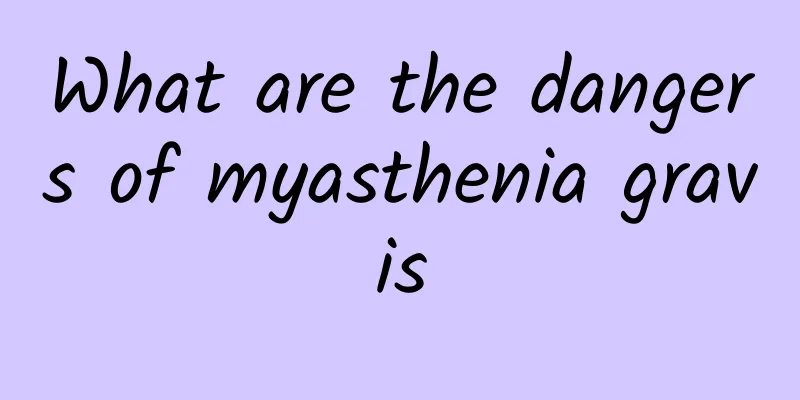Causes of tinnitus due to hypertension

|
Patients with hypertension often suffer from dizziness, because dizziness makes a person feel like walking on cotton, walking unsteadily and easily falling. In addition, hypertension is a common disease among middle-aged and elderly people, so after developing hypertension, patients will not only feel dizzy, but also often experience loss of appetite, sleepiness, tinnitus and deafness. What is tinnitus caused by high blood pressure? Hypertension causes tinnitus, which is mainly due to long-term high blood pressure, which leads to local arteriosclerosis, and then may cause local blood supply obstruction, which may cause tinnitus symptoms. In addition, long-term high blood pressure may lead to cerebrovascular disease, especially cerebral arteriosclerosis, cerebral vascular stenosis, and even occlusion leading to cerebral infarction, which may cause problems in other parts of the body. For example, neurosensory disorders can also cause tinnitus. In another case, a sudden increase in blood pressure may cause cerebral hemorrhage, which may affect the auditory nerve, so tinnitus symptoms may also appear. For tinnitus caused by high blood pressure, the main thing is to control blood pressure in a standardized manner and then receive anti-atherosclerosis treatment. If the tinnitus is caused by cerebral infarction or cerebral infarction, in this case, proper nutrition of the brain nerves and treatment to improve brain metabolism may be of some help to the tinnitus. Symptoms and signs According to the onset and progression of the disease, it can be divided into slow-onset and rapid-onset types, with the slow-onset type being more common. Slow-onset hypertension (I) Early manifestations: There are usually no symptoms in the early stages. Occasionally, high blood pressure may be found during a physical examination, or dizziness, headache, blurred vision, tinnitus, insomnia, fatigue, and inattention may be felt after mental stress, emotional excitement, or fatigue. These symptoms may be caused by disorders of higher mental functions. In the early stage, blood pressure only rises temporarily, but as the disease progresses, blood pressure continues to rise and organs are affected. 2. Brain manifestations: Headache and dizziness are common. It is often triggered by emotional excitement, excessive fatigue, climate change or discontinuation of antihypertensive drugs. A sudden rise in blood pressure. Severe headache, visual impairment, nausea, vomiting, convulsions, coma, transient hemiplegia, aphasia, etc. (III) Cardiac manifestations: In the early stage, cardiac function is compensated and symptoms are not obvious. In the later stage, cardiac function is decompensated and heart failure occurs. 4. Renal manifestations: Long-term hypertension leads to renal arteriosclerosis. When renal function is impaired, it may cause nocturia, polyuria, and urine containing protein, casts, and red blood cells. Poor urine concentrating function, phenol red excretion and urea clearance disorders. Azotemia and uremia occur. (V) Arterial changes. (6) Changes in the fundus. |
<<: What is the appropriate age to have eye bags removed?
>>: Is acute tinnitus serious?
Recommend
What causes appendicitis?
I believe everyone has heard of appendicitis! The...
What medicine should I take for loose teeth and pain
Loose and painful teeth are common in life. There...
What to do if the depression is left by mole removal
Not everyone has a smooth and flawless face. Some...
How long does it take to cure damp-heat with Chinese medicine?
Damp-heat is a condition that is more likely to o...
Is frequent ejaculation good for your health?
Whether it is excessive sexual activity or mastur...
How to prevent age spots
Speaking of age spots, it is a nightmare for many...
TCM conditioning and syndrome differentiation treatment of spleen deficiency and dampness
In life, many people’s physique tends to be in a ...
Influenza is a type of infectious disease
Influenza is an infectious virus infection with a...
Menstrual bleeding continues
Menstruation is a normal and normal phenomenon fo...
Can boiling water with willow twigs cure various skin diseases?
Boiling willow twigs in water is a folk remedy fo...
Causes of shortness of breath, check to find the cause in time
If you usually have shortness of breath, you shou...
What is the matter with asshole hair?
It is normal to have some body hair around the an...
Treatment of sequelae of stroke
We are all familiar with stroke. The most common ...
Why is there blood in the ear?
There are many reasons for ear bleeding. The most...
What is the best treatment for tenosynovitis?
For patients, the most important thing in treatin...









